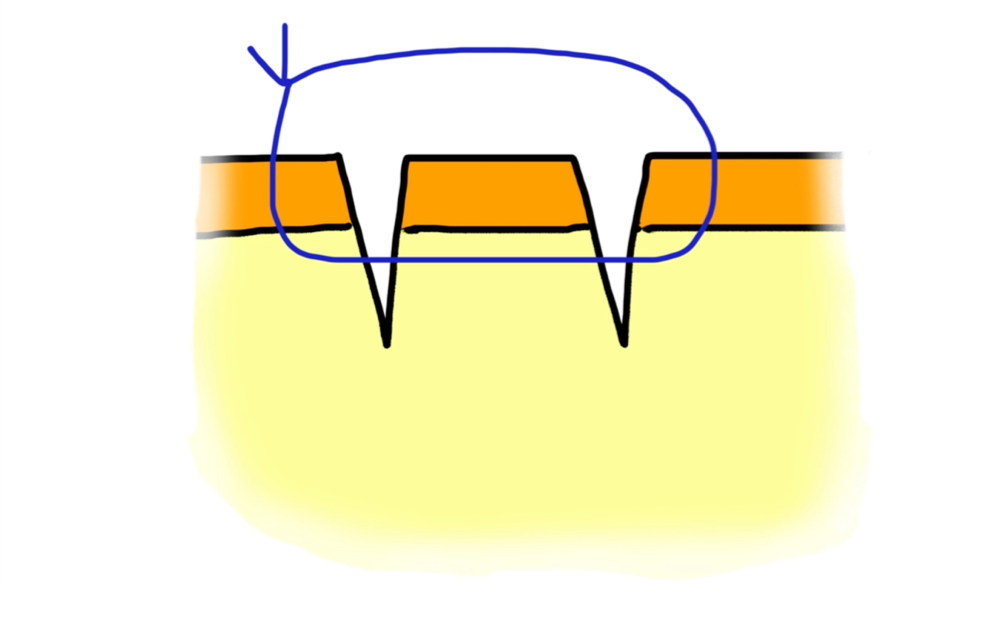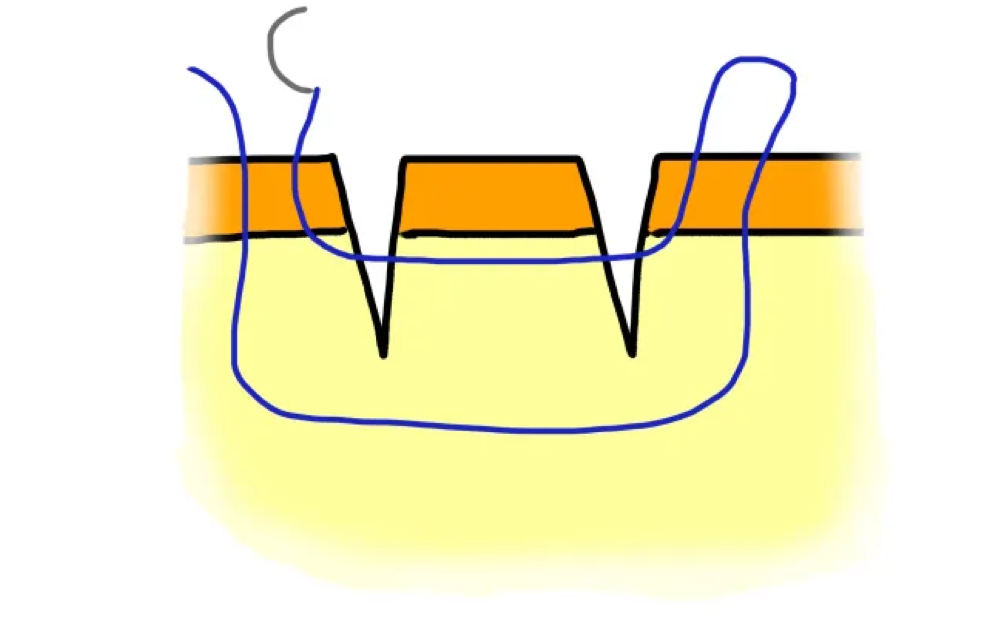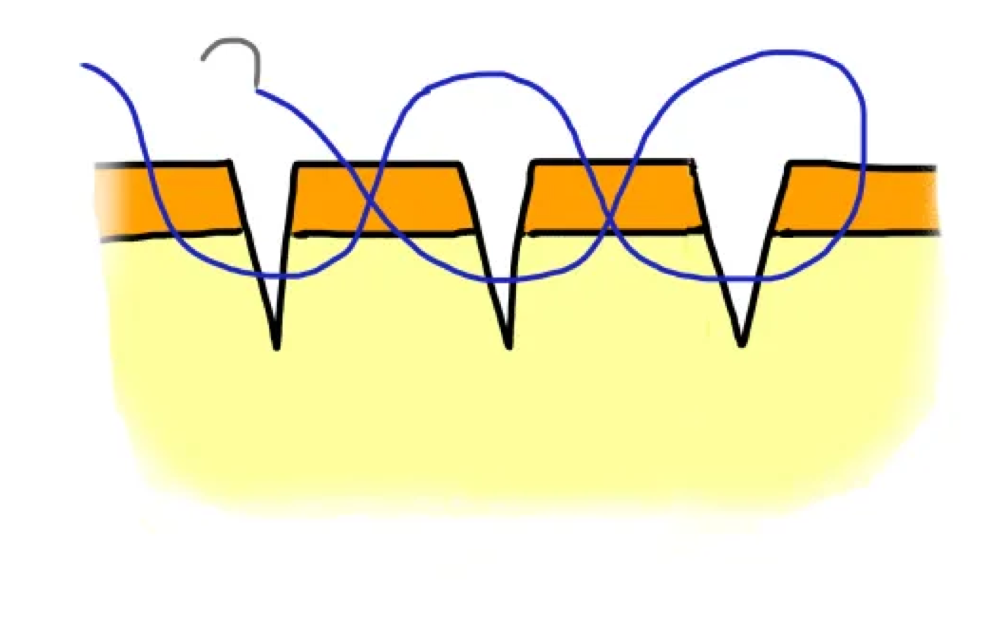Brief Summary
Occasionally patients present with parallel wounds in close proximity. The following techniques demonstrate rapid closure of multiple parallel wounds. Methods 1 and 2 are for two parallel wounds. Method 3 can be used for numerous parallel wounds.Indications
Linear, parallel wounds of approximately the same size.Method 1: Simple Interrupted

Illustration of parallel laceration repair with simple interrupted suture. Image from Closing the Gap
- Throw the needle through the epidermis on the far side of the farther wound, entering the “tissue island” between the parallel wounds at the dermis
- Exit through the dermis on the near side of the island and reload the needle.
- Pass the needle through the near wound’s closest edge, exiting through the epidermis.
- Instrument Tie
Method 2: Horizontal Mattress

Illustration of parallel laceration repair with horizontal mattress suture. Image from Closing the Gap
- Throw the needle through the epidermis on the far side of the farther wound, entering the “tissue island” between the parallel wounds at the dermis
- Exit through the dermis on the near side of the island and reload the needle.
- Pass the needle through the near wound’s closest edge, exiting through the epidermis.
- Using a backhand technique, drive the needle through the near wound’s closest edge and passing through the dermis of the tissue island
- Reload the needle and drive it through the far side of the farther wound, approximately the same distance from the wound edge and along the plane of the wound creating a square of entry/exit points
- Instrument Tie
Method 3: Figure of Eight

Illustration of parallel laceration repair with figure-of-eight method. Image from Closing the Gap
- Throw the needle through the epidermis on the far side of the farthest wound, exiting the far “tissue island” through the epidermis
- Reload the needle and drive it through the epidermis of the next tissue island, continuing in the same fashion until you exit the near wound’s closest edge
- Using a backhand technique, pass the needle from the near wound’s closest edge and exit through the tissue island
- Continue passing the needle in a backhand fashion through each tissue island until you exit the far side of the farthest wound
- Instrument tie